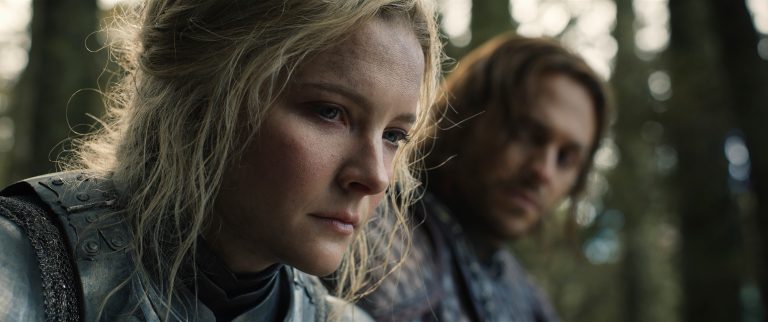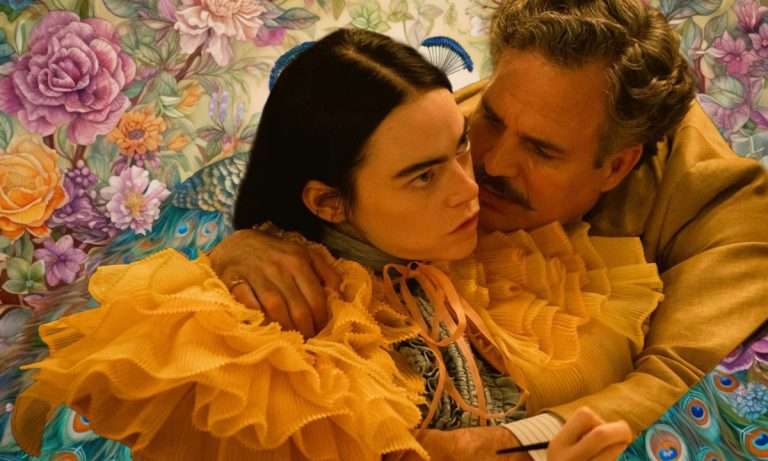A lot is going on under the linear, violent surface of the Coen brothers’ modern classic. One of those films that never stop being a baffling enigma, No Country For Old Men, continues to cultivate its symbolic polysemy more than a decade after its fiery emergence. The Deakinsified wide hollowness of a wilder West emblematizes the frustration of the chase where the predator and the prey, for better or worse, fail to maintain their preconceived positions.
On paper, the neo-western thriller is pretty darn straightforward. At the same time, its riveting thematic depths are hard to miss. With infallible allegiance to its adumbral message, No Country For Old Men lays out a thorny path for its grim characters. Your takeaway may be your own, but the bleak despondence that is communicated through every turn of the otherwise simple narrative is very much an intended conjuration.
When all is said and done, it is a story of a morally gray man haplessly catching the formidable attention of a ruthless killing machine. But there’s infinitely more to No Country For Old Men than just that.
No Country For Old Men (2007): Plot Summary and Movie Synopsis
A worthy introduction to the nightmarish hitman Anton Chigurh (Javier Bardem) takes us to the Texas jail. The death of a naive deputy comes in the form of cold-blooded strangulation by the air-pistol-wielding Chigurh. Post a calm cleanup, maintaining his signature unflustered demeanor, Chigurh sets out for the road in the cop car. He stops only to indulge himself in a car swap and a shocking murder of the new vehicle’s innocent owner. Where he may be going is as much of a mystery as where he has come from. But by now, we are unfortunately aware of what he is capable of.
A lonesome, tranquil gas station happens to be a stop he makes on his parched path through the desert. Irked by the general pleasantries the innocuous owner of the store tries to entertain him with, the psychotic killer asks him to take part in a coin toss. But spares him his life when the man unwittingly wins the game. We are then instructed to turn our eyes at the impulsive buck-hunter Llewelyn Moss (Josh Brolin) on one of his breezy hunting endeavors that will soon take a dark turn.
How Does Llewelyn invite trouble?
When he misses a shot and sends the herd rushing, Llewelyn spots and follows an injured pit bull. A little stroll in the scorching desert makes him stumble on the bloody fallout of a drug deal gone horribly wrong. He trots past the corpses of the Mexican drug dealers and hoards the pistols and magazines he finds. Opening a car door makes him find the last man breathing. Fatally shot but still alive. When the agonized man asks him for water, Llewelyn is unable to provide it. Instead, he walks some more, steals the case full of $2 million adjacent to the American counterpart of the drug deal lying dead, and sets out for home.
He isn’t quite talkative with his wife, Carla Jean (Kelly Macdonald), who simply wants to know what her fidgety husband has been up to. At night, the deafening guilt of not being able to give water to a dying man keeps Llewelyn up. He isn’t naive enough to believe that the man may still be alive. But the teachings of kindness instilled in him cause Llewelyn to go back for the man in the middle of the night.
When he is chased by two men in a truck shooting at him, he decides to swim instead of walking, only to have a rabid dog follow him down the river. Scratched up, Llewelyn shoots the dog and rushes back home to send Carla Jean to hide out at her mother’s. He moves out of his trailer and lays low in a seedy Del Rio motel. Hiding the money briefcase in an air duct is hardly a calculated plan to save him from the wrath of Chigurh, who has been hired to retrieve the money.
How Does Sheriff Ed Tom Bell Get Involved?
Investigating the harrowing aftermath of the botched drug deal sends Terrell County Sheriff Ed Tom Bell (Tommy Lee Jones) to Llewelyn’s house, which is freshly broken in. Carla Jean is under the strict instruction of absolute silence by her husband, who Ed Tom is now seeking. Meanwhile, Chigurh follows the tracker inside the moneybag and reaches the motel. But instead of finding Llewelyn or the money, the brutal hatchet man finds a group of Mexicans unfortunate enough to be on his murderous path. When he is brought in to investigate the motel killings, Ed Tom notices a similar pattern of the break-ins.
Both the locks he had recently come across had been blown out with an air pistol. Ed truly wishes to end the increasingly bloody turn the whole ordeal is taking and save Llewelyn from becoming another unfortunate collateral.
On the other hand, Llewelyn has moved into another motel and found the tracking device in the bag. But before he can dispose of it, Chigurh has already caught up with him. What follows is a devastating chase of cat and mouse, which leaves both parties horribly wounded. As luck would have it for the poor old sheriff with a noble goal, Ed Tom always arrives when it’s already too late. By the time Llewelyn has crossed over to Mexico and Chigurh has gone on his destructive path, Ed Tom only has the blighted roads full of wrecked cars and another dead civilian to look at.
No Country For Old Men (2007): Themes Analyzed
Cattle and Men
The dehumanization of men to the level of cattle in the increasingly violent American west is one of the most depressing recurring themes in the Coen brothers‘ cult classic. There is essentially no difference between livestock and men in the rancid lands of human life that has lost even its residual value.
When meeting Carla Jean, sheriff Ed Tom mentioned the ramifications of an anecdotal farmer using a regular gun to cripple an animal. He also mentions the fascinating invention of a captive bolt pistol that renders the animal immobile without risking a ricocheting bullet. In the spooky picture of the west that the Coen brothers seem to design, the menacing sociopath Chigurh uses a similar device to kill his unsuspecting victims.
To Chigurh, a psychotic killer who represents the daunting debasement of human life, there’s hardly any difference between man and cattle. All Chigurh cares about is getting it done without a bullet that can be traced back to him, much like the farmers avoiding a dangerous spring back by using a bolt gun on the animals instead of one that shoots a bullet.
Fate and its Inevitability
Anton Chigurh, who plays the ominous grim reaper himself, brings death wherever he goes. But it’s not as simple as satisfying the psychotic killer’s homicidal urge. He is a man of messed up morals, as we learn from the revered hitman Carson Wells (Woody Harrelson), who is hired to bring down Chigurh. Under the delusion that he is the enforcer of inexorable fate, Chigurh walks around with sinister coins to toss. The flagbearer of fate first makes the grisly labyrinth of his mind somewhat pellucid when he asks the gas station employee about his life. “So you married into it?” isn’t to harmlessly suggest that the man has come to be the owner of the business by marital association. It is instead to point out that his fate has brought him close to the ugly maw of death.
If anything, the poor man married into the misfortune of colliding with Chigurh’s frightening form. Only sheer luck saves him from the dark turn that could be taken by the coin that has traveled 22 years to bring men to their fate. It is evidently the inevitability of fate that brings Llewelyn into the mess. Completely submerged in greed, he doesn’t stop to think of the consequences when he steals the money. Having a dangerous killer on his back only adds to the thrill of the chase for someone as consumed by masculine arrogance as Llewelyn.
Llewelyn doesn’t just risk his own life but also that of his wife when Chigurh threatens to kill her if he doesn’t give the money back. But even a self-proclaimed bringer of fate isn’t above the all-powerful nature of fate. Chigurh himself gets badly wounded in the ordeal and has to blast his way through a pharmacy to patch himself up. And even after all that, he doesn’t get his hand on the money as easily as he expected.
The Cruel Wheel Of Time
When you take your eyes off the deadly cat-and-mouse chase for a second, you inevitably spot the story’s real protagonist, sheriff Ed Tom Bell. The film starts off with Ed Tom mourning the simpler times his law-enforcement predecessors lived in. Coming from a long line of sheriffs, Ed Tom has a preconceived notion of how things work in the wild west. But the more violence he sees with his helpless eyes, the closer he gets to the wretched acceptance that this isn’t the same place that allowed his father and his grandfather to go out without a gun in their holsters.
With each instance of mindless cruelty Ed Tom witnesses, he realizes how insignificant his work is compared to the erratic ways the criminals operate. At the same time, he has the delusionary notion that the past was all sunshine and butterflies. Ed Tom has concocted a fool’s paradise in his perplexed mind. When he goes to lay his heart bare to his ex-cop, uncle Ellis, he is instructed to remove his rosy glasses when he looks back at the past. There was violence aplenty, even when their uncle got murdered by the Native Americans. However, the reassurances given by Ellis fall short of changing the mind of a man who has already resolved to retire.
No Country For Old Men (2007): Ending Explained
Who Kills Llewelyn, and who takes the money?
The speculations about the circumstances of Llewelyn’s death have caused a lot of sleepless nights in the last 16 years. Llewelyn was predominantly busy worrying about Chigurh. Being completely engrossed in the ghastly killer’s thoughts made him forget that the drug gangs were also chasing him. He hatched a plan to meet Carla Jean at a motel in El Paso and give her the money. If Llewelyn could get the worries of protecting the cash off his shoulders, he could focus on going after Chigurh. When Carla Jean and her mother reached El Paso, the Mexicans followed them there.
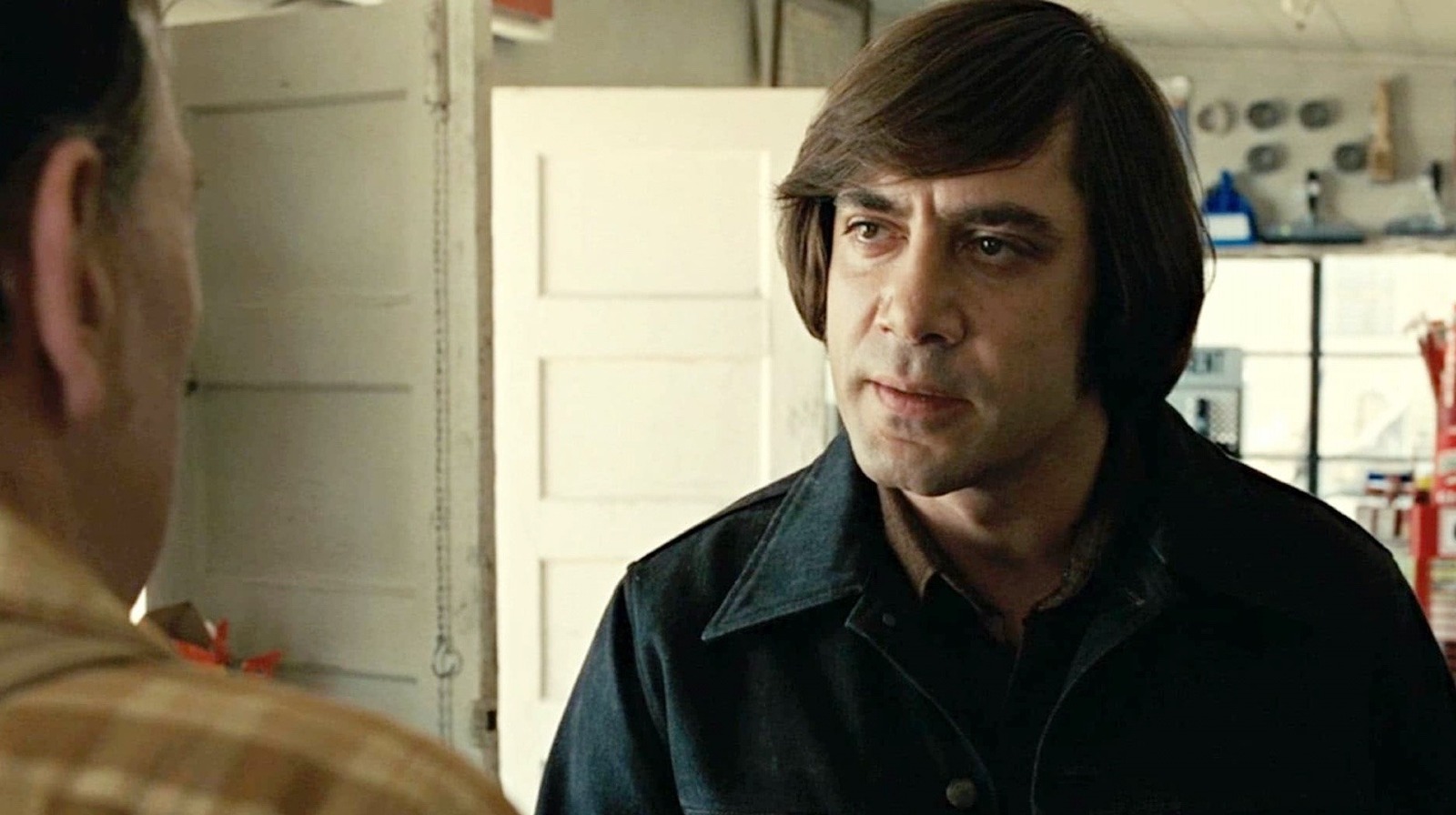
While the writers have purposefully left the status of the $2 million in the dark, they have also left copious amounts of clues behind. If you connect the dots of every notable pointer peppered throughout everything that came after Llewelyn’s death, you can easily conclude that it was Chigurh who took the money. When Ed Tom returned to Llewelyn’s motel room at night, he found the lock to be blown out in Chigurh’s signature style. It’s not just the audience that knows that the vicious killer was in the room. Ed Tom knew quite well that Chigurh was inside. But luckily for the devastated sheriff, Chigurh bolted before he walked in.
During his first motel hideout, Llewelyn had figured out a way to hide the briefcase in the room’s air vent. When the Mexicans came to kill him at the El Paso motel, they were unaware of the money’s hiding spot and were in a hurry to escape before the cops pulled in. When the rubble settled down, Chigurh came back to retrieve the money. As he already knew Llewelyn’s vent trick, all he had to do was to remove the grill to get to the briefcase.
Does Chigurh Kill Carla Jean?
A Man of his words – in the most twisted way possible – Chigurh shows up at Carla Jean’s place right after her mother’s funeral. In his wretched mind, a word is a word. And since Llewelyn did not take his deal for the sake of his “sanity,” Chigurh was compelled to kill his widow. He did give her a fair shot, whatever “fair” might have meant in that perverse head of his. Carla Jean was asked to take part in the coin toss just like that gas station owner.
But unlike that guy, Carla refused to entertain Chigurh and outright rejected his barbaric game. We didn’t get to see the physical confirmation of her death. But there is no doubt that Chigurh did take her life as we see him checking his boots for blood out on her porch. He walked out of the entire ordeal of brutality and death without much of a loss until he got in an accident at the very end – a minor payback in the form of a bone sticking out of his arm.
What do Ed Tom’s dreams signify?
This is one of the most widely asked questions about the film’s cryptic ending. By the time the film gets its introductory sequence out of the way, it is made abundantly clear that Ed Tom idolizes his father. Looking up at his county sheriff father with absolute awe and respect is evidently why he opted to follow the same career. His father must’ve protected his youthful innocence from the violent truths that haunted the wild west. It never was the peaceful place that Ed Tom lovingly remembered. When Texas’s festering violence gets too much for him to handle, it becomes impossible for Ed Tom to stay on a job where he can’t make a difference.
After retirement, the ex-sheriff talks about his two dreams just the night before. In both, he was visited by his father. The first dream has him losing the money that his father gave him. It may have resulted from what really eats away at Ed Tom. He feels that he has disappointed his father. If the money is his troubled subconscious’ version of the job that was handed down to him by his father, the dream may be an allusive way of his mind attacking him with the intrusive thoughts he consciously blocks out. As he mentions, the second dream has Ed Tom on horseback, riding through the dreary frostiness of the desert while his father rides past him with a fire torch. It concludes with his father preparing fire for the exhausted son who follows.
While the first dream triggers the insecurities that already distress the old ex-sheriff, the second dream comes as a warm reassurance of his father waiting for him at the end of the road. He will follow the laid-out path as he always has, and when his life gets to its sunset, he will be reunited with the man who has been waiting for him with the warmth of the fire and that of fatherly love.

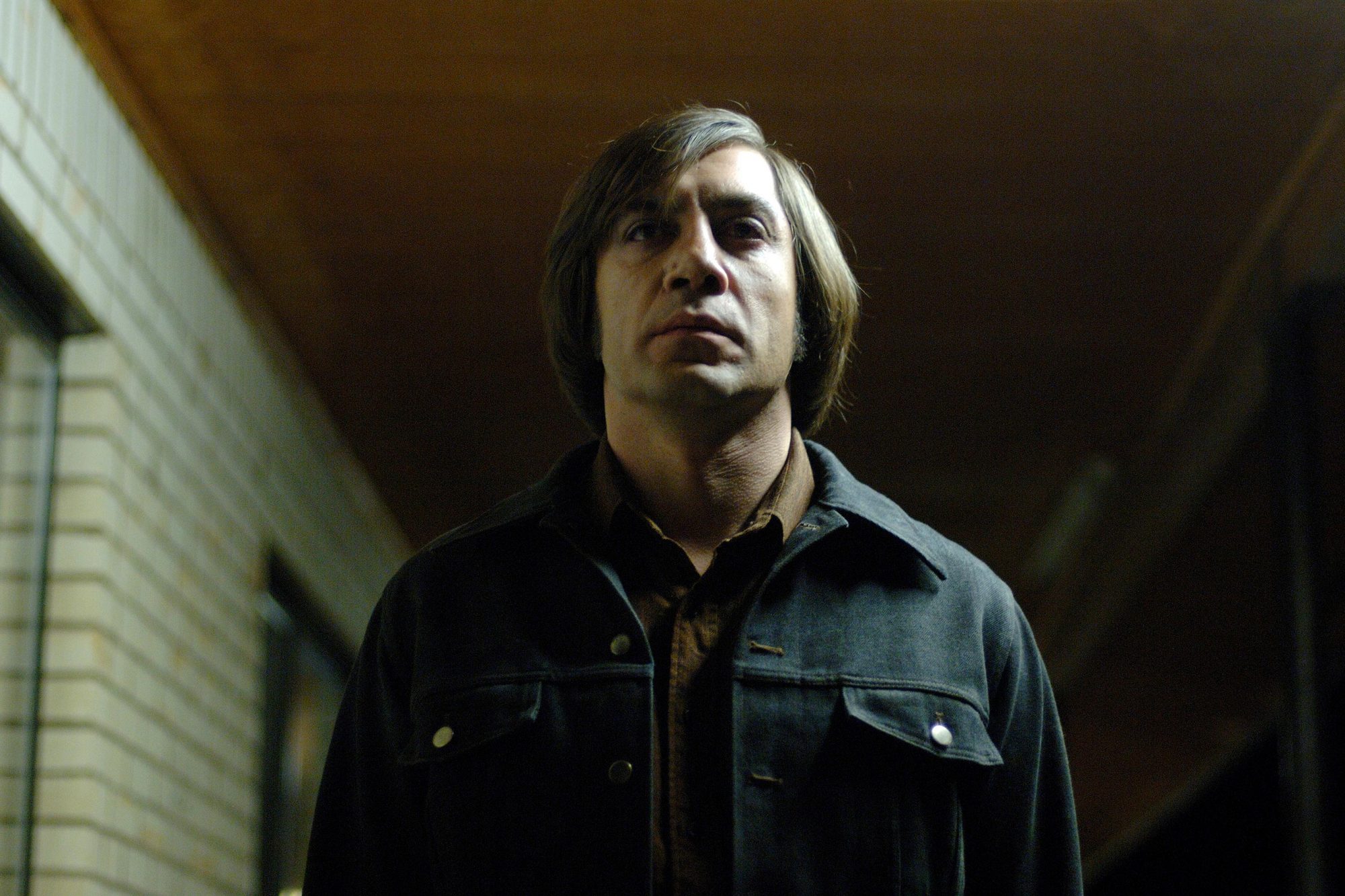

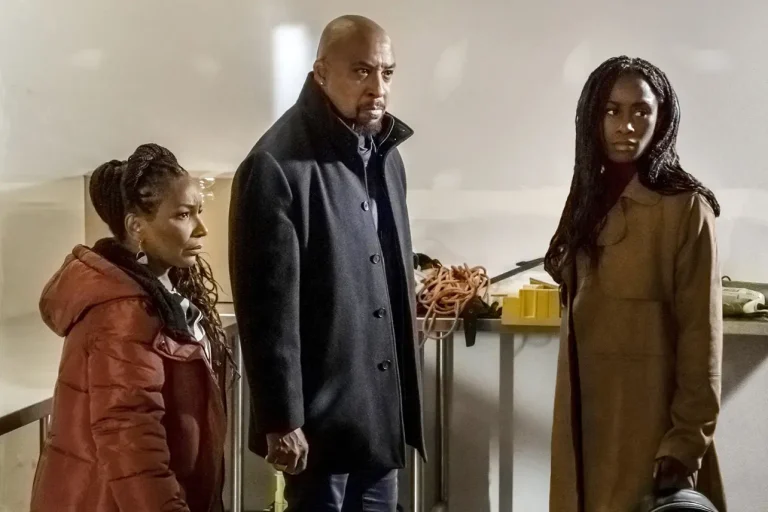
![The Protector Review [2005]: An Adrenaline-Fuelled & Action-Packed Muay Thai Mayhem](https://79468c92.delivery.rocketcdn.me/wp-content/uploads/2018/08/tom-yum-goong-screenshot-1-768x515.jpg)
